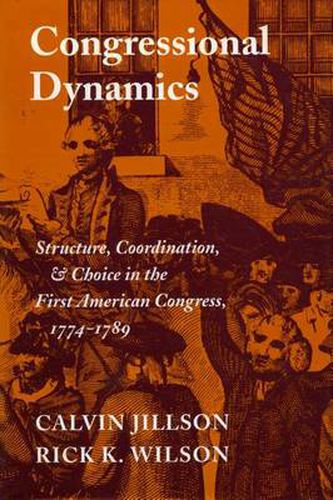Readings Newsletter
Become a Readings Member to make your shopping experience even easier.
Sign in or sign up for free!
You’re not far away from qualifying for FREE standard shipping within Australia
You’ve qualified for FREE standard shipping within Australia
The cart is loading…






In 1774 delegates from twelve English colonies in North America assembled in congress. This assemblage laid the foundation for the first national political body in the United States. The basic institutional identity of the Continental Congress never changed over its fifteen-year history. Nonetheless, perceived deficiencies in its structure and performance helped forge the Federal system founded in 1789. This book focuses on the origins, evolution, and demise of the Continental Congress, reinterpreting its successes and failures from the perspective of the ‘new institutionalism’. The authors analyse the behavioural record of the delegates - their votes, voting coalitions, work load, committee assignments - and conclude that norms, rules, and structures were as much to blame for the Congress’s failure as the twelve represented states’ reluctance to support and finance it.
$9.00 standard shipping within Australia
FREE standard shipping within Australia for orders over $100.00
Express & International shipping calculated at checkout
In 1774 delegates from twelve English colonies in North America assembled in congress. This assemblage laid the foundation for the first national political body in the United States. The basic institutional identity of the Continental Congress never changed over its fifteen-year history. Nonetheless, perceived deficiencies in its structure and performance helped forge the Federal system founded in 1789. This book focuses on the origins, evolution, and demise of the Continental Congress, reinterpreting its successes and failures from the perspective of the ‘new institutionalism’. The authors analyse the behavioural record of the delegates - their votes, voting coalitions, work load, committee assignments - and conclude that norms, rules, and structures were as much to blame for the Congress’s failure as the twelve represented states’ reluctance to support and finance it.